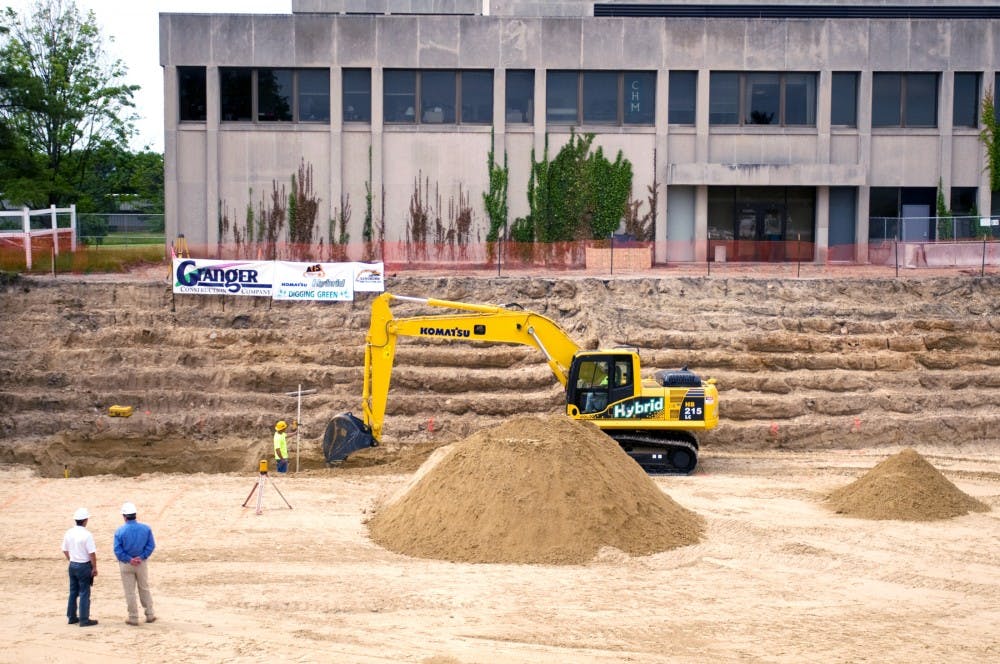Michigan’s first hydraulic excavator using hybrid technology is being operated at a construction site on MSU’s campus.
AIS Construction Equipment Corporation, a 50-year-old Michigan-based company, is the supplier for what will be the Bott Building for Nursing Education and Research located on Bogue Street south of Service Road. AIS opted for a green alternative and recently invested in the hybrid machine.
Craig Williams, the AIS area manager, said a hybrid excavator can cost between 15–20 percent more than a regular machine, but with the amount of reduction in fuel consumption, the owner could earn his payback for the additional cost in as early as three to five years.
“It actually performs the same as a comparable machine that does not have the hybrid technology, so you don’t sacrifice any performance of the machine to gain the fuel efficiency or the reduction in emissions,” he said.
The hydraulic excavator was introduced in 2008 by Komatsu Ltd., one of the world’s largest developers of construction machinery. It’s a part of a series of hybrid equipment that uses a combination of diesel and electrical power.
Brent and Renee Sanborn are the owners of Sanborn Construction, the excavating constructor for the project.
The couple said it’s their first time working with hybrid construction equipment but not their last.
“I believe it’s something that will be coming into the future,” Brent Sanborn said. “There’s a lot of mandate on construction projects now to lower the carbon footprint, so this is one way to do it.”
Renee Sanborn said she predicts that down the line, constructors will be required to use machines with hybrid fueled technology.
As with any new product, it will take time before users of the equipment will be able to identify what long-term issues might come up with the machines.
Barry Roney is the project director of Granger Construction, the project’s managing company.
Roney said he encourages using hydraulic excavators as it will result in pros, such as cleaner air
and cost-effective operations, but it’s too soon to determine the cons.
“I think one of the concerns would be: Is the equipment going to stay efficient over time? Is it going to be costly to repair?” he said. “That’s something to be seen in the future.”
Aditya Singh, a graduate student studying construction management, currently is interning for Granger.
Singh said he feels hybrid technology will play a big part in construction management in the future.
“It’s really good for the environment, good for the project,” he said. “Overall, I think it’s very unique and should be used more often.”
Support student media!
Please consider donating to The State News and help fund the future of journalism.
Discussion
Share and discuss “Hybrid technology put to use on campus” on social media.







